What will customer experience look like in the future? Artificial intelligence (AI) is transforming the business landscape, offering new ways to understand and engage with customers. With its ability to process vast amounts of data and personalize interactions at scale, AI is ushering in a new era of customer-centricity, and a new level of customer experience. Yet, one principle remains steadfast: the importance of putting customers first.
In our recent episode of the AI Business Catalyst podcast, my co-hosts Alain Picard, Omar Gawad, and I had the pleasure of discussing this evolution with AI marketing consultant and coach Jonathan Mast. We explored how AI is reshaping customer experience through the use of AI personas, the strategic application of data and knowledge, and the irreplaceable role of authenticity. Let's get started...
Is Customer-Centricity Changing?
Customer-centricity has always been about placing the customer at the heart of everything we do. In the past, this meant building trust through face-to-face interactions, personalized service, and consistent communication. Today, while the core values remain the same, AI provides us with tools to enhance and scale these efforts in ways we couldn't have imagined a decade ago.
Personalization Meets Technology
One of the most significant changes AI brings to the table is the ability to personalize customer experiences on a massive scale. During our podcast, Jonathan highlighted how AI can tailor onboarding processes based on individual customer profiles. Imagine sending customized welcome emails that resonate with each customer's background, interests, and needs—all generated and dispatched automatically.
In my own experience working with businesses, I've seen how this level of personalization can make customers feel truly valued. It's about meeting them where they are and speaking their language, both literally and figuratively.
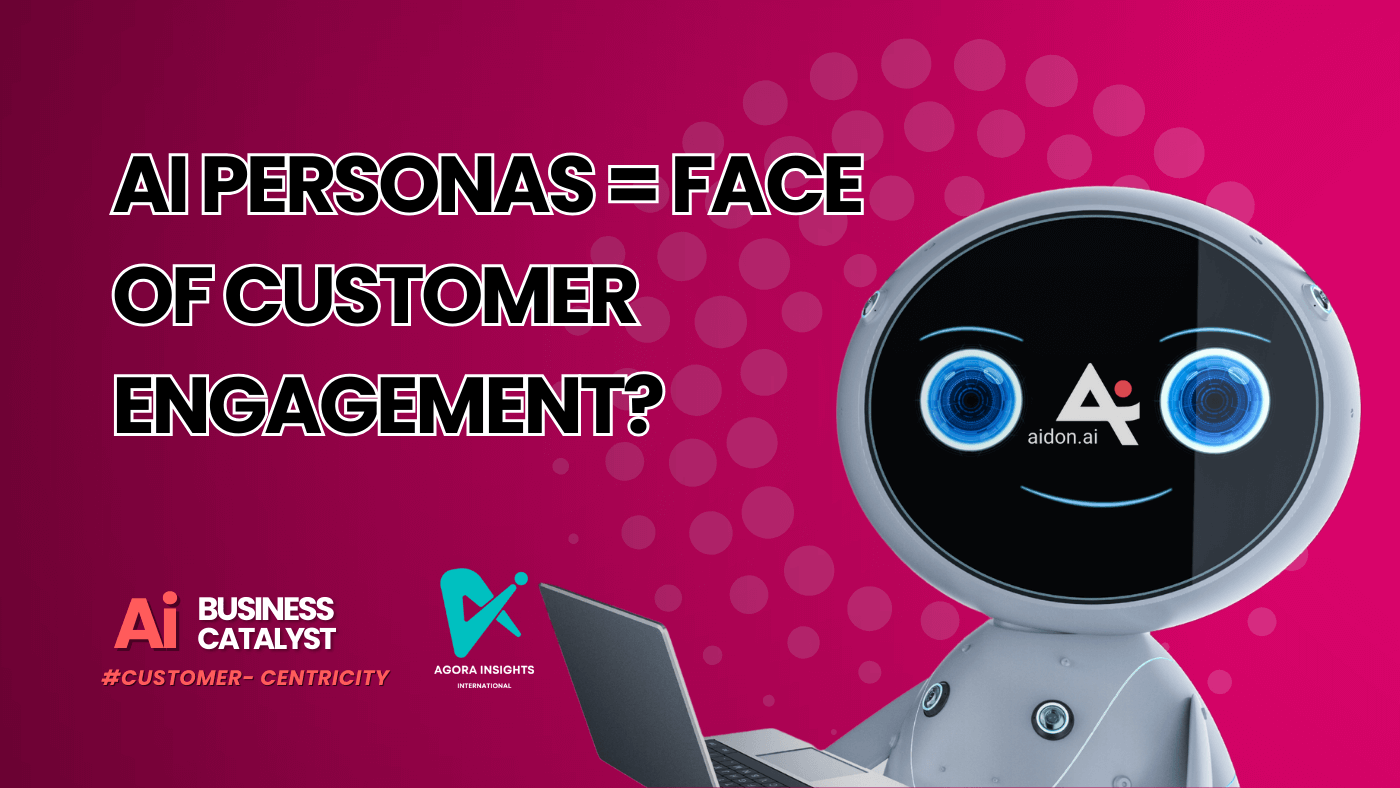
Will AI Personas Be the New Face of Customer Engagement?
AI personas are essentially digital constructs that represent your brand's voice and character in customer interactions. They are trained to communicate in ways that align with your company's values and resonate with your audience.
Consistency Builds Trust
Trust is foundational in any relationship, especially between a brand and its customers. AI personas can help build and maintain that trust by providing consistent interactions. Unlike humans, AI doesn't have off days. It doesn't get tired or frustrated, which means customers receive the same level of service every time they engage.
During the podcast, we discussed how AI doesn't get "bored" with repetitive tasks. This consistency ensures that even routine interactions are handled with the same care and attention as more complex engagements.
Personalized Communication
AI personas can adapt their communication style to suit different customer segments. For instance, a technical customer might appreciate detailed explanations, while another might prefer a high-level overview. By adjusting the tone and depth of information, AI personas can make each customer feel understood and catered to.
Jonathan shared an insightful example: tailoring interactions for a sales and marketing professional versus an engineer. The AI can modify its language and approach to match the customer's background, enhancing the overall experience.
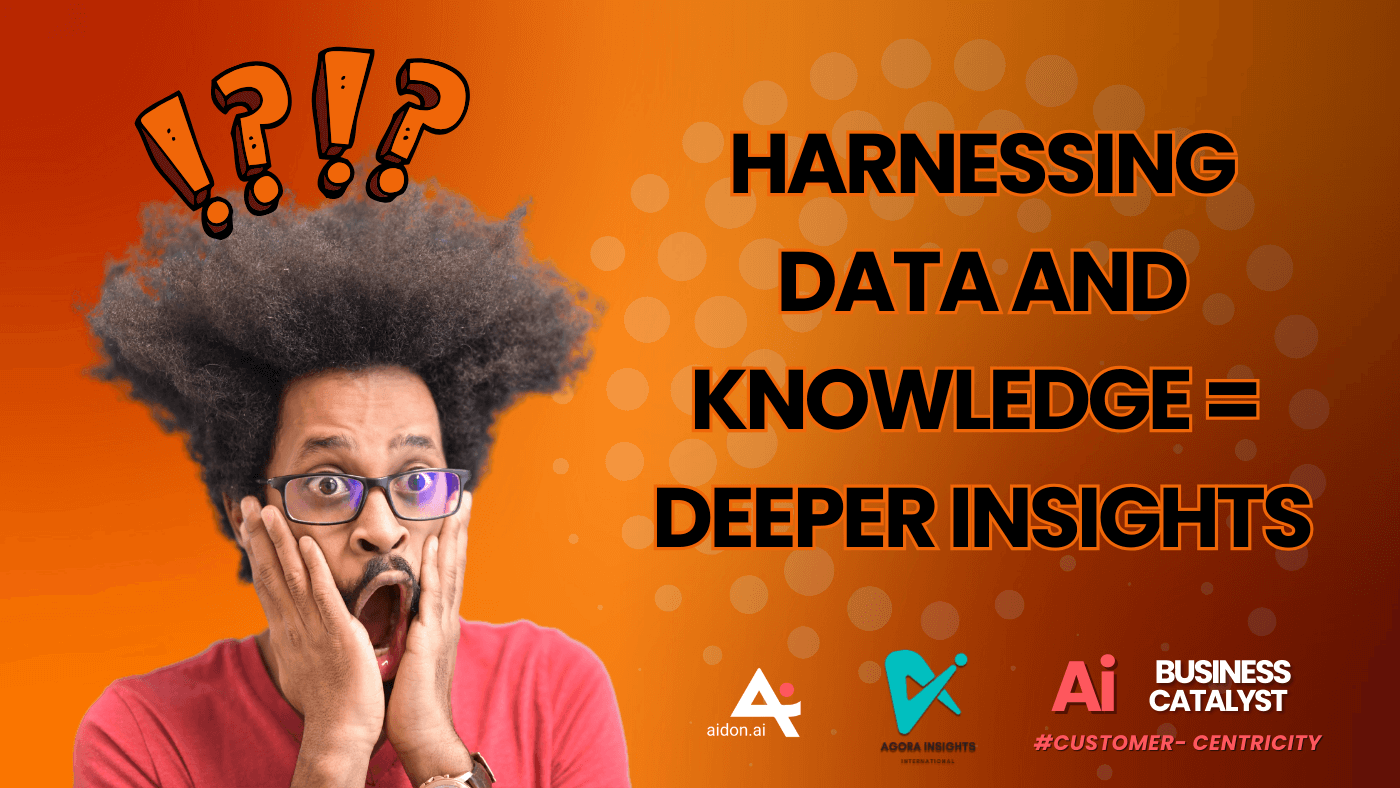
How Can We Harness Data and Knowledge for Deeper Insights?
Data is the fuel that powers AI. With the right data, AI can provide insights that help businesses understand their customers better and make informed decisions.
Understanding Your Customers
By analyzing customer data—such as purchase history, browsing behavior, and feedback—AI can identify patterns and trends that might not be immediately apparent. This deeper understanding allows businesses to anticipate customer needs and preferences.
I often encourage businesses to ask, "What can our data tell us about our customers that we don't already know?" AI can reveal these hidden insights, enabling more effective marketing strategies and product development.
Real-Time Adaptability
AI's ability to process vast amounts of data in real-time means it can adjust to customer feedback on the fly. If AI detects that a particular approach isn't resonating with customers, it can pivot quickly, ensuring that interactions remain positive and effective.
For example, if customers consistently show frustration during a specific part of the onboarding process, AI can highlight this issue, allowing the business to make immediate adjustments.
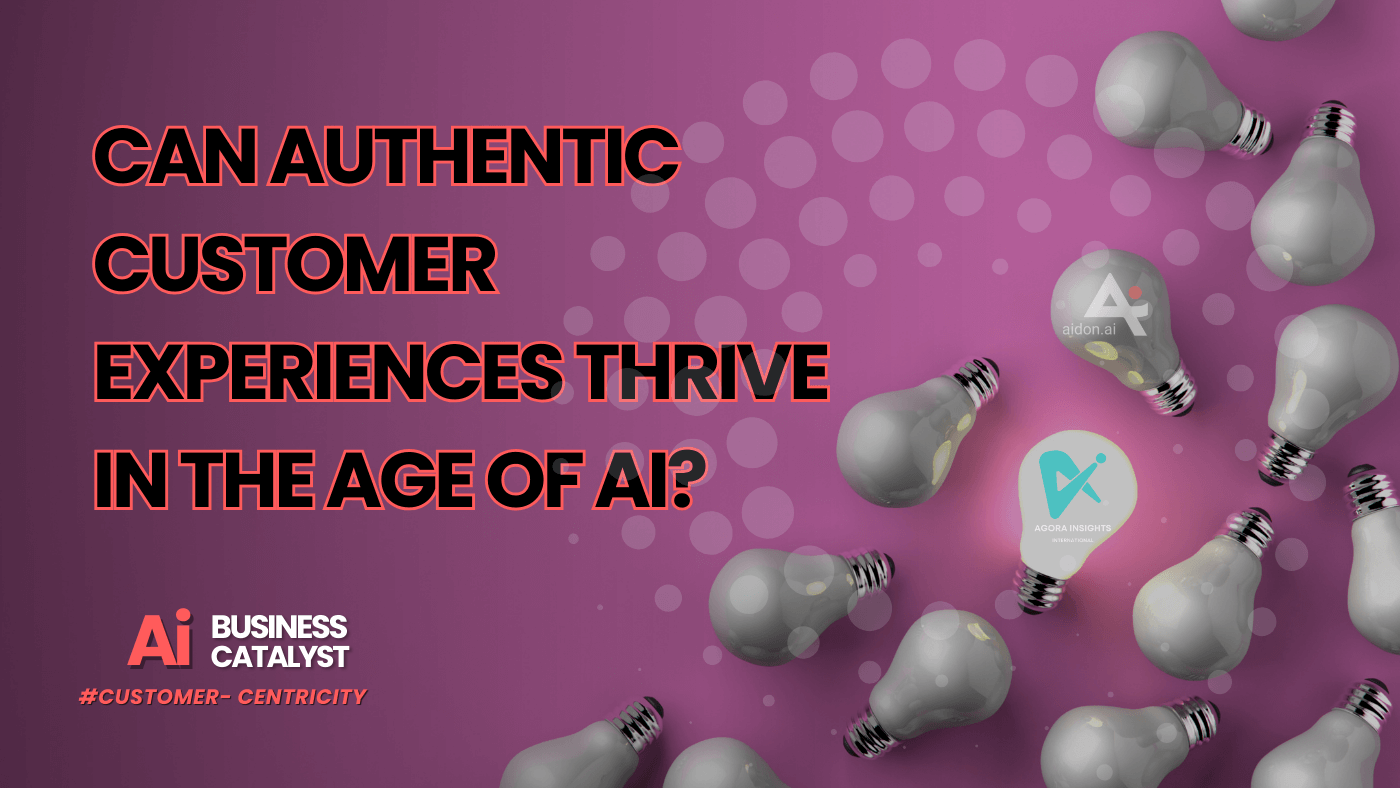
What Is Authenticity and Why Does the Human Touch Matter?
While AI offers incredible advantages, it's essential not to lose sight of the human element that makes customer relationships meaningful.
Transparency and Choice
Customers value honesty and transparency. It's important to let them know when they're interacting with AI and, when possible, provide the option to connect with a human representative. Jonathan emphasized the importance of not deceiving customers about AI interactions, as doing so can erode trust.
In our discussion, we agreed that giving customers the choice empowers them and respects their preferences. Some may prefer the efficiency of AI, while others might seek the empathy and understanding that only a human can provide.
Maintaining Brand Integrity
Your AI personas should reflect your brand's identity accurately. This means training them not just on customer service protocols but also on your company's values, tone, and style. As someone who firmly believes in the power of branding, I can't stress enough how crucial it is that every customer touchpoint reinforces who you are as a business.
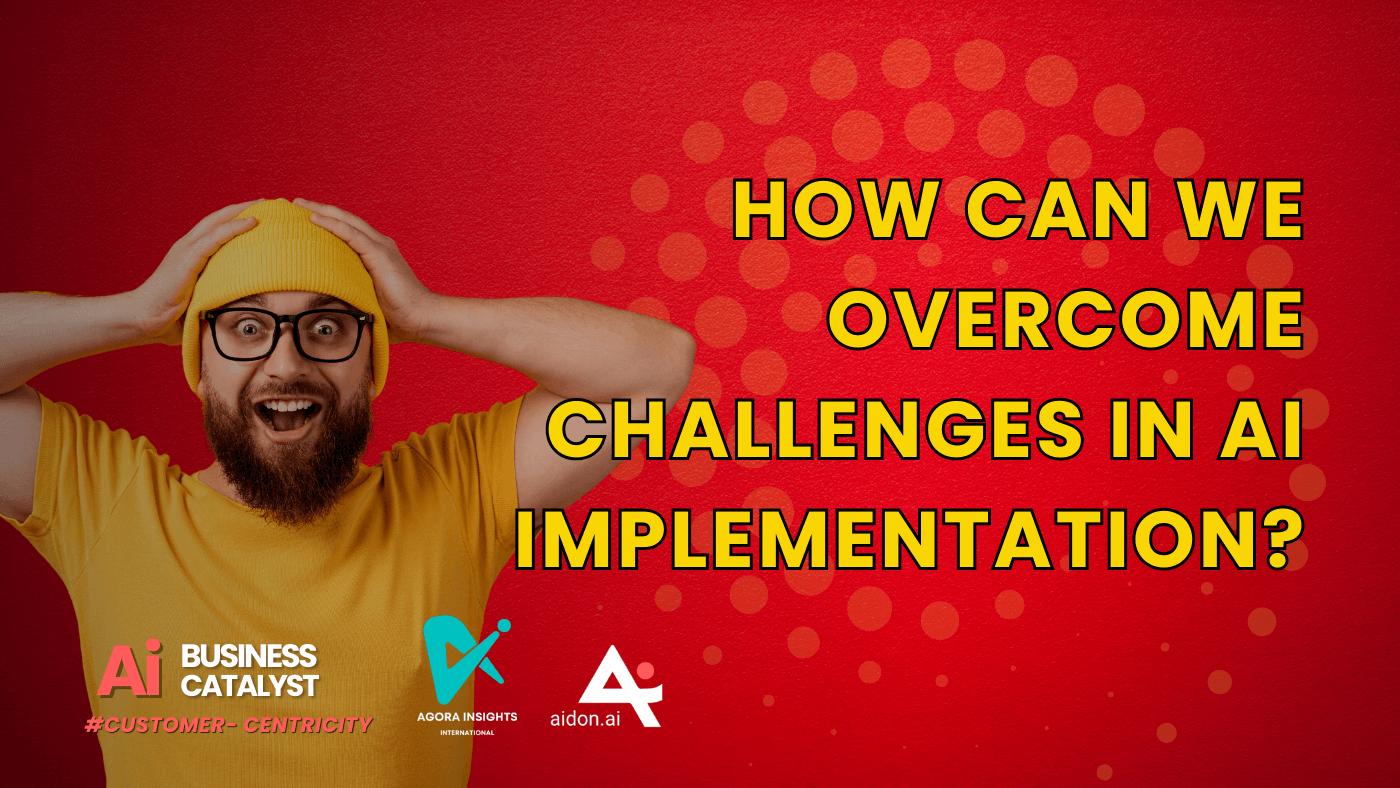
How Can We Overcome Challenges in AI Implementation?
Integrating AI into your customer engagement strategy isn't without hurdles. Here are some insights on navigating these challenges:
Start Small and Build Confidence
It's tempting to dive headfirst into AI implementation, but starting with smaller, manageable projects can lead to better outcomes. Jonathan suggested identifying repetitive tasks that your team doesn't particularly enjoy and automating those first. This approach allows your team to become comfortable with AI and builds confidence in its capabilities.
For instance, you might begin by using AI to handle routine customer inquiries or to analyze customer feedback. As you gain experience and see positive results, you can expand AI's role in your operations.
Engage and Support Your Team
Change can be unsettling, especially if team members fear that AI might replace their roles. It's crucial to involve your team in the transition, provide training, and communicate how AI will support rather than replace them.
I always advocate for viewing AI as a tool that amplifies human capabilities. By offloading repetitive tasks to AI, your team can focus on more complex and creative aspects of their work, ultimately adding more value to the business.
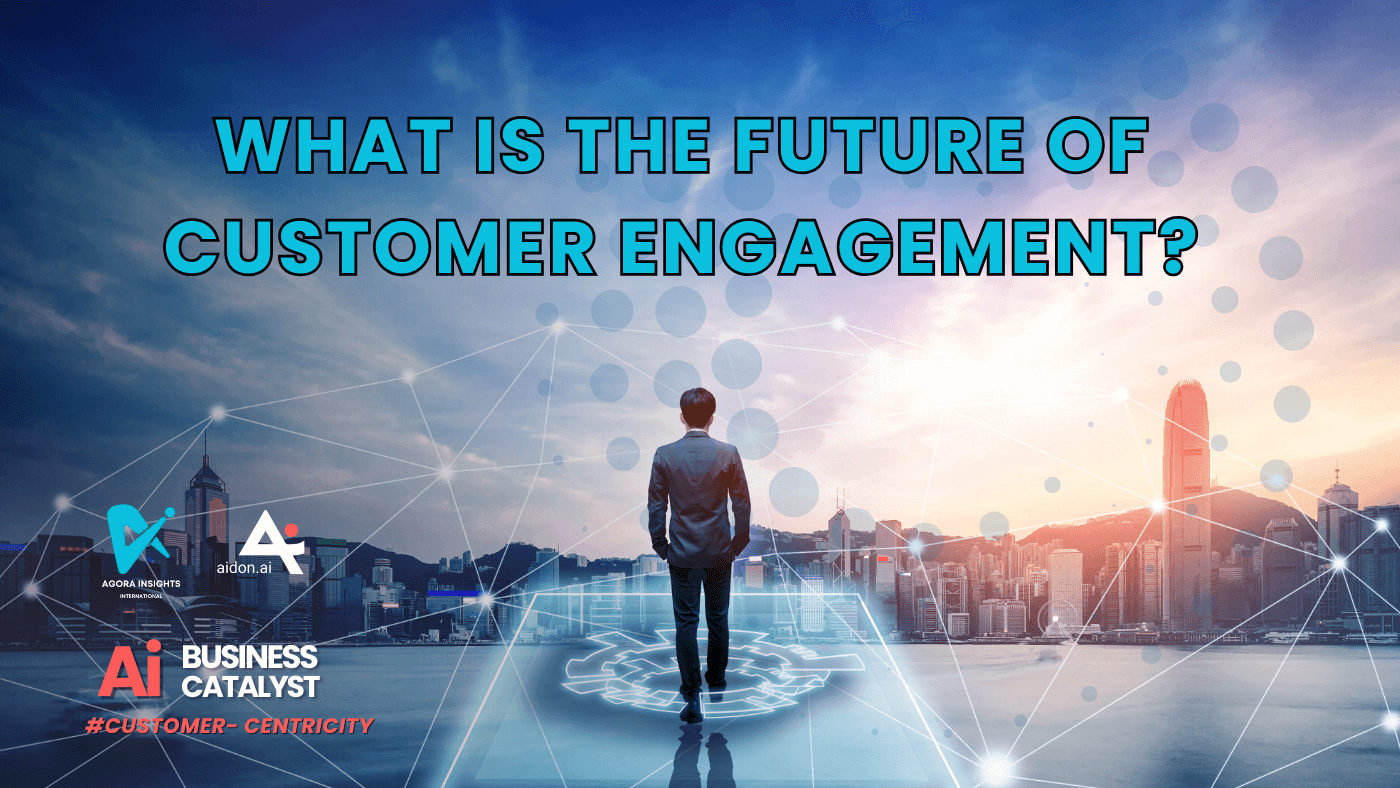
What Is the Future of Customer Engagement?
Looking ahead, it's clear that AI will continue to shape customer expectations and the ways we meet them.
Instantaneous Service
Customers will increasingly expect immediate responses. AI enables businesses to provide 24/7 service without compromising quality. However, it's important to balance efficiency with personalization to avoid making interactions feel robotic.
Enhanced Personalization
As AI becomes more sophisticated, the level of personalization it can offer will deepen. This means even more tailored experiences, from product recommendations to bespoke communication strategies.
Collaboration Between AI and Humans
The most successful businesses will be those that find the optimal balance between AI automation and human interaction. AI can handle the heavy lifting of data processing and routine tasks, while humans can focus on building relationships, strategic thinking, and complex problem-solving.

Final Thoughts
In our podcast discussion, one thing became abundantly clear: while AI is a powerful tool for enhancing customer-centricity, it doesn't replace the need for human connection. Authenticity, trust, and genuine engagement remain at the heart of meaningful customer relationships.
By thoughtfully integrating AI personas, leveraging data wisely, and maintaining a steadfast commitment to authenticity, businesses can not only meet but potentially exceed evolving customer expectations.
As we continue to explore the possibilities that AI offers, let's remember to keep our customers at the center of our strategies. After all, technology should serve to bring us closer to our customers, not create more distance.
Connecting With Us...

To get biweekly videos and interviews from leaders around the world, why don't you try connecting to our Architecting AI for Business Newsletter
Want to access more content, connecting with the Inner Circle is recommended
Just a reminder that Agora Insights and now Aidon.ai open up a world of learning and AI-Assisted Solutions for Business Architects, Analysts, Strategists, and Business Leaders. Contact us for a demo.
To watch more videos, visit YouTube.
Interested in business architecture and business analysis certification, corporate and AI training?
Go to our website www.agorainsights.com
Connect with Deirdre Caren on LinkedIn
Connecting with Jonathan Mast
Jonathan Mast is an AI consultant and coach dedicated to empowering businesses and professionals to unlock the full potential of artificial intelligence. His coaching services focus on "AI Prompting Mastery," equipping clients with the skills to craft effective prompts for AI language models. Whether working with entrepreneurs, professionals, or business leaders, Jonathan’s guidance and tools are essential for thriving in the AI-driven future.
Social links:
Post sponsored by Agora Insights Ltd


Post a Comment